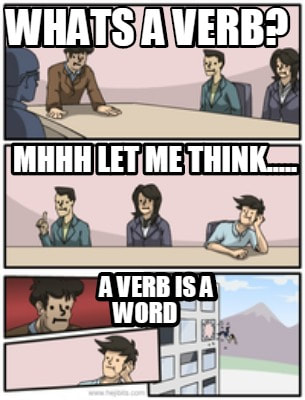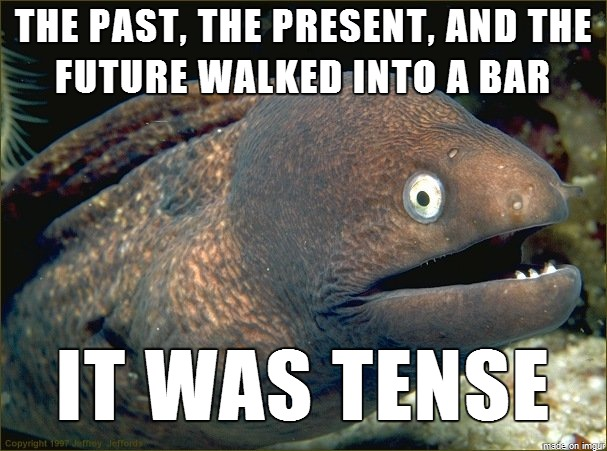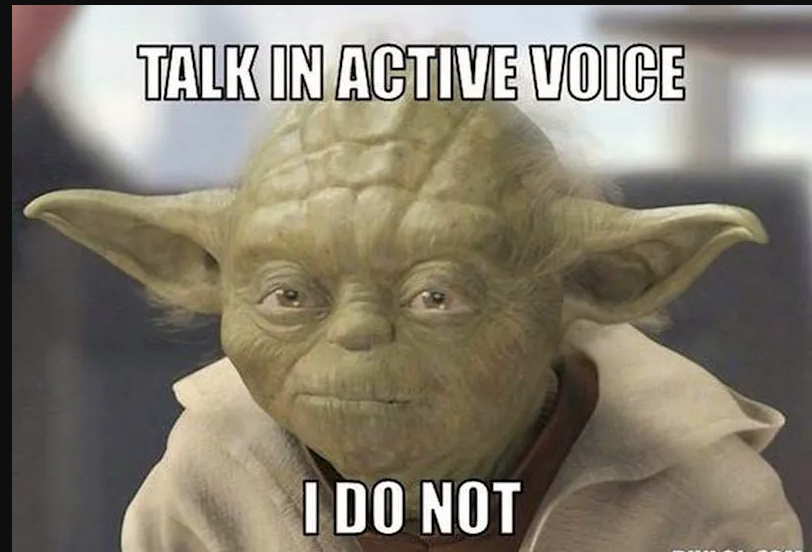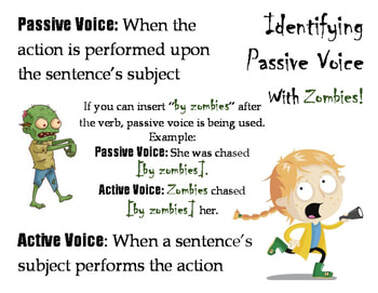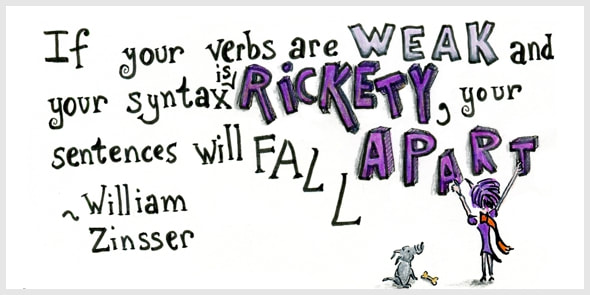AuthorHi, I'm Ray Evans. I'm a certified copyeditor and proofreader. Archives
September 2023
Categories |
Back to Blog
Ladies and gentlemen, gather 'round, because today we're going to dive into the thrilling world of... wait for it... verbs! I know, I know, you're on the edge of your seat, but try to contain your excitement. You might just learn how to make your writing more dynamic, engaging, and so awe-inspiring, readers won't be able to put your book down. Verb TensesNow, let's start by discussing verb tense. I mean, who doesn't love discussing the past, present, and future? It's like a high school reunion, but for your verbs. Your verb tense sets the stage for your story, determining whether your readers feel like they're right there in the action or listening to grandpa's tale about walking uphill both ways in the snow. Are you writing about something that happened back when bell-bottoms were in style? Use the past tense! Need to describe a present situation, like the feeling of sweet relief when the barista finally calls your name for that triple-shot espresso? Present tense is your ticket. And if you want to transport your reader to a utopian future where automated robots have taken over proofreading (gasp!), the future tense will be your trusty companion. The age-old battle between active and passive voice. Now, let's tackle the age-old battle between active and passive voice. In one corner, we have the active voice – the Chuck Norris of sentence construction, kicking butt and taking names with its direct, forceful action. The passive voice, on the other hand, sits in the shadows, quietly weaving its web of ambiguity like a sneaky spider. But you know what? Even the passive voice has its place in the world, just like a well-timed dad joke at the dinner table. The key is knowing when to unleash the action hero or employ the subtle saboteur. For example, let's say you're writing a gripping thriller. Which sentence hits you harder: "The spy chased the villain through the streets" or "The villain was chased through the streets by the spy"? If you picked the first one, congratulations! You've just experienced the adrenaline rush of the active voice. If you're ever doing self-editing and unsure if you're using active or passive voice, you can just apply the zombie test below to figure it out quickly! ⏬ Verb TipsNow that we've covered the basics, let's dive into some verb-boosting tips and tricks that will turn your writing into a literary fireworks display.
0 Comments
Read More
Your comment will be posted after it is approved.
Leave a Reply. |
 RSS Feed
RSS Feed
